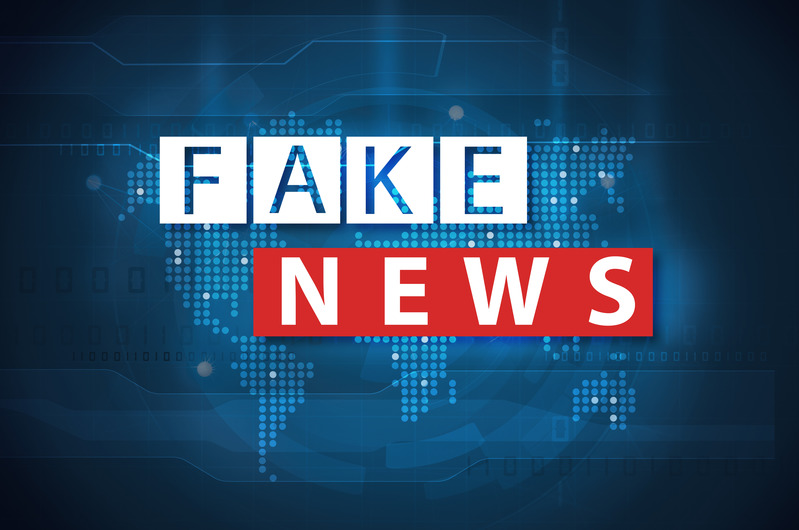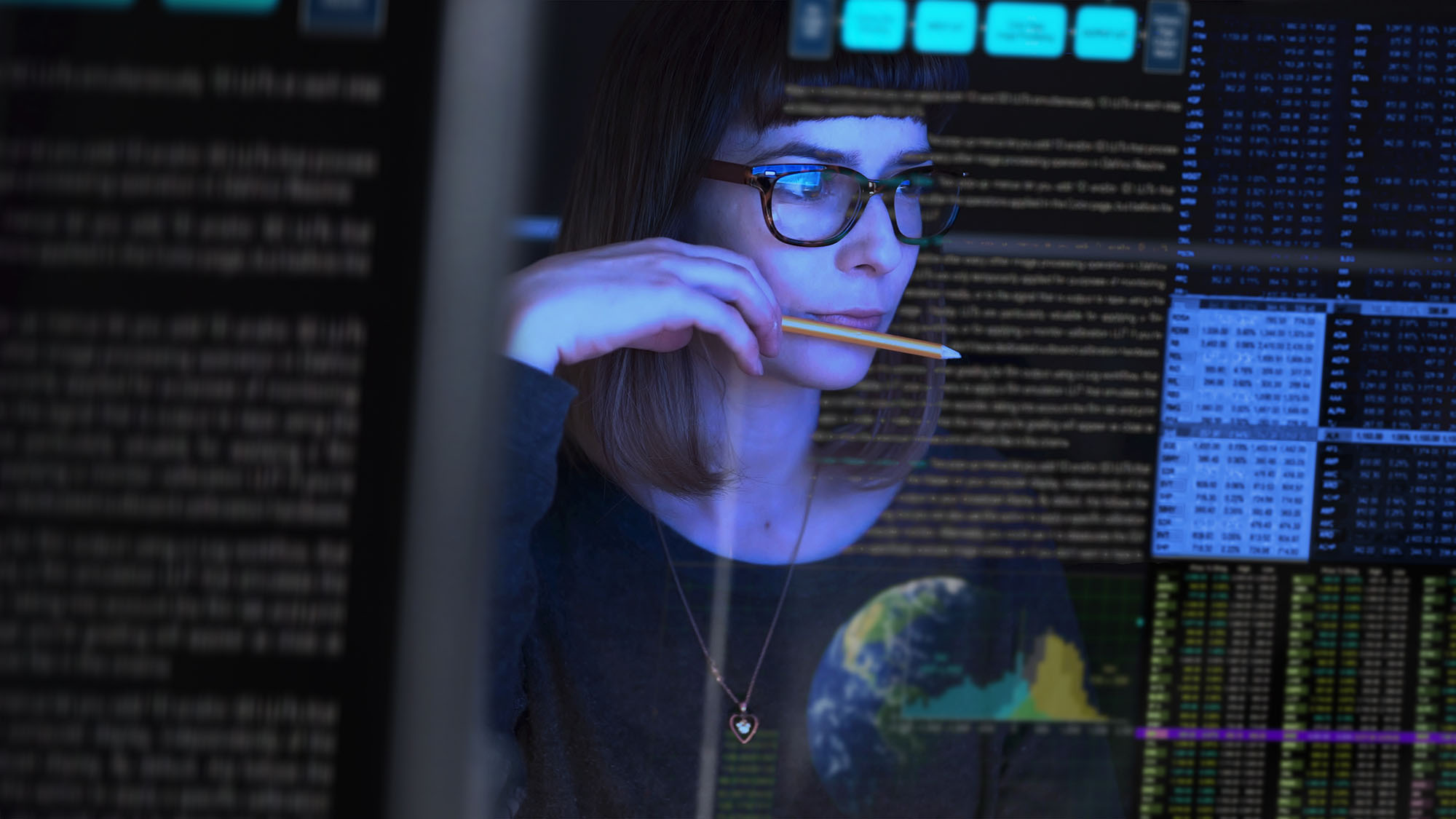The term “fake news” is nothing new but in recent times it has become a huge problem for societies around the world. The term “fake news” itself has become extremely popular after being used regularly by former US President Donald Trump. It can mean a lot of different things to many people but to sum it up, fake news is a false news story with no credible facts or sources. Fake news can be created both intentionally and unintentionally. Although fake news can be found anywhere, it is mostly spread on social media platforms as information can be shared easily and quickly, and with much less control. It is more important than ever to know how to protect yourself and your company against fake news. Read on to discover the ins and outs of fake news and how you can protect yourself by differentiating the truth from the fake!
What do we mean by fake news exactly?
Now that we know the definition of fake news, let’s get more into the deeper, darker details. As we know, fake news is news that appears to be true but is not based on any reliable sources. It misleads readers and manipulates them into thinking a certain way about a certain subject. There are several different types of fake news to be taken into consideration. Here are a few to watch out for.
Parody
Online websites such as Daily Mash or Gorafi produce fake stories to be humorous. Although this news is not intended to harm or mislead, when shared out of context it has the potential to be read the wrong way. They are meant to be shared on social media at large levels and are highly dependent on the doubt they can create in a reader. Read with caution!
Propaganda
Propaganda can be included in fake news. This form of news is designed to promote a certain political or ideological agenda. It originates from political points of view with the goal of increasing public awareness around a particular political stance or point of view and rally people to a cause.
Bad Journalism
Reporters may report on events and newsworthy topics without having all the facts. Perhaps they are adhering to strict deadlines, or purely just being sloppy. Whatever the case, they are presenting unreliable information that has not been fully verified or fact-checked.
Clickbait
The emotional trap. Clickbait is a headline that has been produced intentionally to make readers want to click on a hyperlink. It is used as a publishing trick to increase webpage views and associated advertising revenue.
Lobbying paid content
Lobbying takes a wide variety of forms. In terms of fake news, it is used to fund campaigns to increase public awareness in exchange for a fee. It can be used through various media outlets including newspapers, magazines, social media and television channels.
Why do we need to protect ourselves against fake news?
The internet has revolutionized the way in which we consume information. The digital world has opened a range of opportunities that we have never seen before. It has, of course, also brought about some extremely positive change. However, at the same time, the digital world has presented society with various challenges that cannot go unmentioned. Technology does not always serve the users’ best interests. This is why it is important to protect ourselves against fake news.
What is the difference between disinformation and misinformation?
An important thing to know is that disinformation and misinformation do not mean the same thing. Yes indeed, both are forms of fake news, the two however have different initiatives. Disinformation is a type of news or information shared that is intentionally false and its sole intention is to manipulate or mislead its reader. Misinformation refers to fake news that is inaccurate and out of context regardless of an intent to mislead.
![[Mockup] Newsroom Schneider](https://blog.wiztrust.com/hs-fs/hubfs/1.%20Marcom/1.4%20Visuals/1.4.1%20Mockup/1.4.1.01.%20Customers%20Newsrooms/%5BMockup%5D%20Newsroom%20Schneider.jpg?width=558&name=%5BMockup%5D%20Newsroom%20Schneider.jpg)
Mindfulness
Society as a whole needs to be mindful and aware of what is being presented online. In a world of identity theft, hackers, and alternative facts it is essential to be wary of what is being shared.
Social Networks
Today, social media platforms are the fastest way to share and spread any type of information. For many people, in particular the younger generations, social media is the only way they receive news updates. Is the information from a trusted news source? The answer is not always clear, which is why it is important to always be wary of any news source and what information is being shared.
How to protect yourself against fake news
So, now that we understand what fake news is, how can we stop ourselves from being sucked into a fake news story or headline? Luckily, there are various steps you can take to protect yourself against fake news. Discover some simple but highly useful recommendations.
Where is your news coming from?
- Check the original source
Where is this piece of information coming from? Always make sure to check the source and author before you believe what you are reading.
The goal of any headline is to provoke and stimulate. Fake news stories often have buzzy titles all in capital letters. If the headline is incredibly shocking, then it usually is not trustworthy. It is important to read beyond the headline by reading the full article. Do not be deceived by catchy titles whose sole purpose is for you to click or tune in to what may not be the truth.
- Fact check & get your news from several sources.
If in doubt, fact check. A good rule of thumb is to see if you can find the same news or information being told by three additional credible sources. If this puts you in difficulty, then it is likely you have stumbled over some fake news. Another top tip is to check the timeline and dates. In fake news, this is often wrong. In a fake news article, the timeline of events does not always make sense.
- Look at the editorial staff
If information is coming from a specific news source, they must be accountable for the veracity of any news they share. One way to do this is by using well-educated and qualified staff. Normally when reading news online, there is an author profile which vouches for their credibility and experience. If in doubt, check who is writing what you are reading.
- Are you sure that it is not satire?
Yes, that is correct, sometimes people like to have a laugh and create a fake news story purely for entertainment or to mock the subject. Fake news normally deals with quite serious information. If an article seems like satire, verify it by fact-checking and digging a little deeper into the story.
- Fake news work because of the reach!
Fake news is successful because it can reach many people quickly. It often spreads at the speed of light on social media platforms. Therefore, it is important to put effort into verifying the source of any widespread news. Just because everyone seems to be talking about a story, does not necessarily mean it is true. To help you, there are programs such as NewsGuard or Wiztrust to aid you in the battle for the truth. NewsGuard is a team of trained journalists leading the fight against fake news and misinformation. Wiztrust helps companies to certify their information on the blockchain and to provide a simple and efficient solution for media and investors to check its authenticity.



 7 min
7 min

 4 min
4 min

 4 min
4 min


 On 7 September, 2022
On 7 September, 2022![[Mockup] Newsroom Schneider](https://blog.wiztrust.com/hs-fs/hubfs/1.%20Marcom/1.4%20Visuals/1.4.1%20Mockup/1.4.1.01.%20Customers%20Newsrooms/%5BMockup%5D%20Newsroom%20Schneider.jpg?width=558&name=%5BMockup%5D%20Newsroom%20Schneider.jpg)